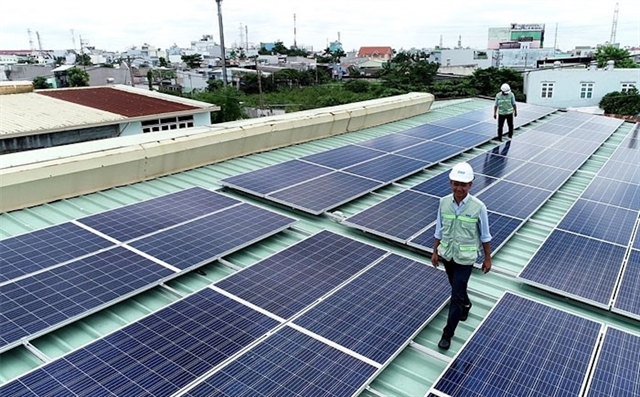
HÀ NỘI — Rising production costs might force Việt Nam Electricity (EVN) to raise retail power prices but no official decisions had been made for this year, according to SSI Research.
In a recent report about the electricity industry, SSI Research pointed out that the contracted output of thermal power plants decreased significantly mainly due to the increases in output of hydroelectricity and solar power.
Thermal power was also adversely affected by rising input costs, including coal and gas prices.
“The increase in input costs for the power system is mainly due to the high selling price of renewable energy, plus the increases in gas prices, which is forcing EVN to try to control production costs,” the report wrote.
“It is likely that EVN will have to raise retail electricity prices to partially offset rising input costs, although EVN has not made any official decision for 2021,” SSI Research said.
According to SSI, average sales price of traditional power sources, including hydroelectricity, gas-fired power and thermal power was VNĐ1,169 per kWh.
Comparing the average sales price (ASP) and feed-in-tariff (FIT), SSI Research pointed out two scenarios.
If the FIT was kept the same at 8.38 cents per kWh, EVN must spend an additional sum of around VNĐ12.7 trillion to switch to using solar energy or VNĐ17.7 trillion if wind power was included.
In the second scenario, if the FIT was lowered to 7 cents per kWh as being drafted, the costs would increase by around VNĐ7.8 trillion or VNĐ10.7 trillion (including wind power).
With a seven per cent growth in power consumption nationwide, SSI said that it would be difficult for renewable energy plants to run at full capacity. In addition, from the end of 2021 to 2022, there would be new wind power projects becoming operational.
According to the Ministry of Industry and Trade’s plan of power supply and national power system operation in 2021, the total power output (both domestically produced and imported) was estimated at around 262.4 billion kWh this year, not increasing much against 2020’s plan at 261.45 billion kWh.
However, the percentage of power generation sources changed significantly. The output of renewable energy sources was expected to total 23.4 billion kWh, or 8.9 per cent of the total output of the power system.
Solar power output totalled 10.6 billion kWH last year, accounting for 4.3 per cent of the total output of the power system. — VNS































